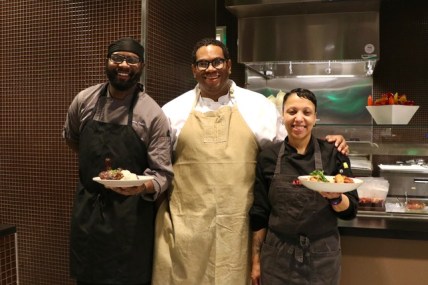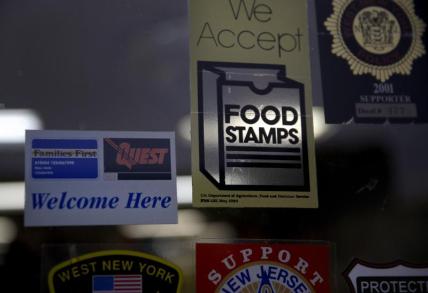How Black veganism can decolonize soul food
OPINION: Decolonizing Black foodways asks us to unearth and unlearn the racist stereotypes that have shaped our collective knowledge about what constitutes the cuisine of our Black ancestors.
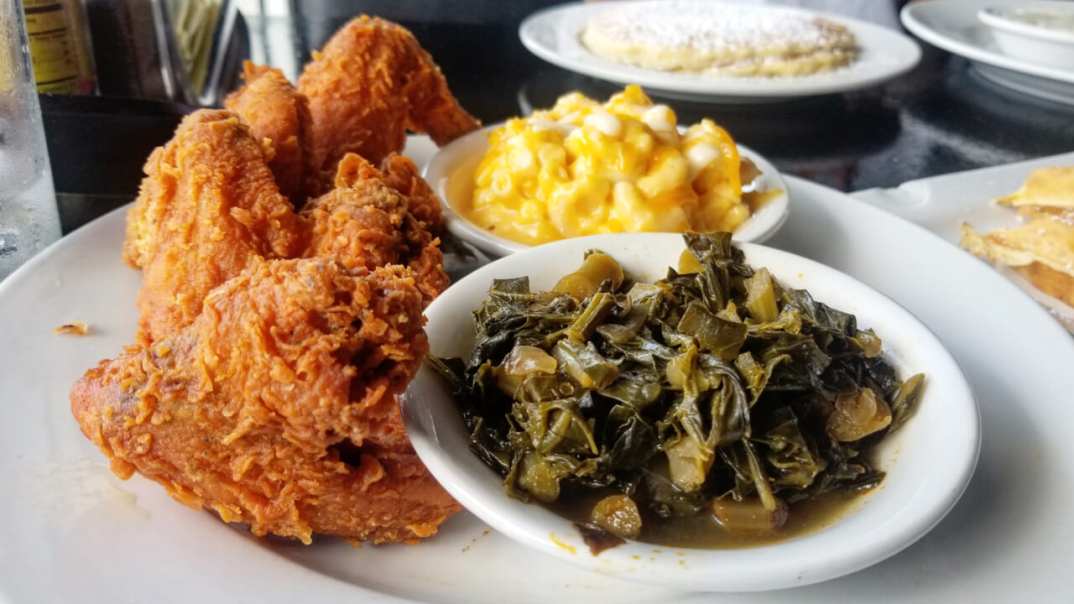
Editor’s note: The following article is an op-ed, and the views expressed are the author’s own. Read more opinions on theGrio.
I believe that it is a natural human tendency to want to be a part of something larger than ourselves and that this desire helps us find meaning and relevance in our lives. Soul food is one way, a fundamental way, that Black people have been able to feel a sense of kinship with other Black people. Soul food reminds Black folks what it feels like to be “us” and in love with “us.”
After moving away from my hometown in Michigan to attend graduate school in California, cooking and eating the foods I grew up eating, soul food was the primary way I could maintain a sense of connection to my community. For me, red beans and rice feels like home. When the pervasive reality of racism knocks me off-center, red beans and rice can be the ground where I can regain my sense of self and remember myself as beloved by and belonging to my community.
The idea to describe Black cuisine as soul food emerged during the civil rights movement as a way to reclaim a culinary identity based on principles that critique the white racist imagination projected upon Black people and our diets. Soul food became a way to demonstrate our belongingness—to our community, our culture, to all the descendants of enslaved Africans in the diaspora. Soul food allowed us to preserve our culinary and cultural traditions and promote our foodway as a distinct cuisine that emerged from the culinary and agricultural genius of Black people.
What should soul food be today?
To be sure, while the U.S. food system has historically dismissed non-white folks, Black people bear the brunt of the economic and ecological costs of our current industrial food system. My recent book, The Spirit of Soul Food: Race, Faith, and Food Justice, seeks to answer a simple question: Given the structural harms of our current food system on Black people, other people of color and poor people, what should soul food look like today? How might we eat in ways that preserve and promote the flourishing of Black communities and critique white supremacy?
I raised these questions during a particularly challenging point in my life when I realized just how personal the realities of the structural evil of our current food system were. Like most Black people who grew up in the northern United States, most of my family lineage can be traced to the plantations of the Old South. My grandfather, Robert Martin, is from Brookhaven, Miss., and grew up in an era when it was common for poor Black children to work and help support the family rather than go to school. And work he did. Robert was a farmworker. He picked cotton, berries, and fruit, detasseled corn, plowed fields—he did whatever he could get hired to do. He started working when he was 8 years old and subsequently left school to work full time when he was 10. When he was 13, Robert left home and became a migrant worker, picking up jobs in Mississippi and Louisiana as he was able and returning home to Brookhaven, often by hitchhiking, when he knew he would be without work for several weeks.
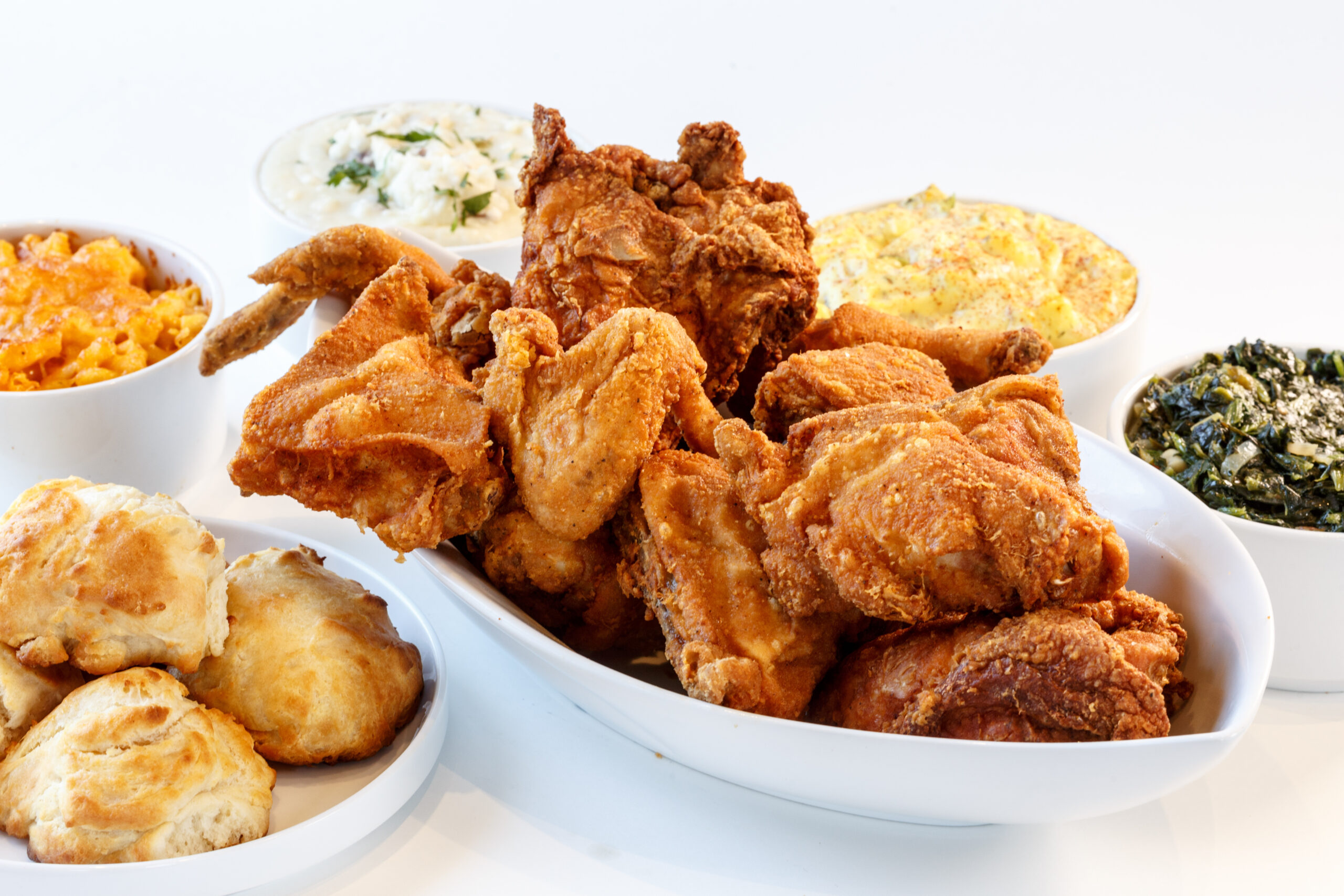
Our food is our history
Learning about the dehumanization my grandfather experienced as a child and young man growing up in the Jim Crow South shook my world. He described himself as being treated like an animal—like an animal. The idea of being called “an animal” wasn’t new to me, but at this moment, I began to understand why white colonists referred to us as animals and why arguing that we “are human” within this flawed human/animal binary was an insufficient response.
Within the Christian tradition that European settlers subscribed to, animals were the only creatures who could morally be treated as chattel. The problem white enslavers faced was that Africans were, in fact, humans! However, the creation of the category of race allowed Europeans to argue that they were fully human beings created in the image of God, and that “Black” Africans were less than human, closer to an animal, the ultimate other. The Europeans who created the idea of race intentionally conflated what it was to be human with Europeanness and whiteness and conflated what it was to be Black with animalness.
Thus to be seen as a full human being within this structure of racial caste, one must, by definition, be white. If you are not white but behave in ways acceptable to white culture, you can be treated like a human, but you are not capable of becoming a full human being. As such, Black humanity has been conditional—white people (and far too many people of color) have judged Black humanness on our ability to perform whiteness. When we do not perform whiteness in ways that are acceptable to the dominant white culture, we are called animals. The animal is the ideological anchor of white supremacy. You are either a human, i.e., white; like a human, i.e., performing whiteness in ways acceptable to those in power; or you are an animal, i.e., non-white or threatening to dismantle white supremacy.
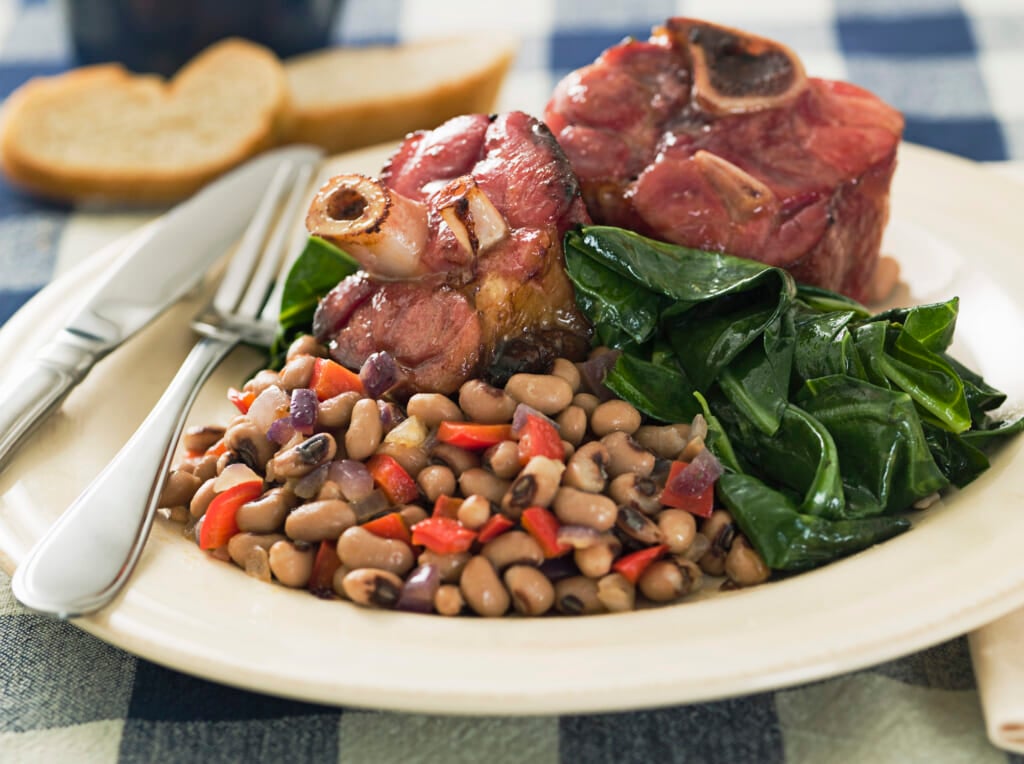
In this way, I suggest that when people of color make the argument that we “are human, too,” we are not critiquing the system of white supremacy; rather, we are making a claim that we should be included among the humans who are allowed to exploit other creatures—this is an argument for equality with the oppressor rather than the dismantling of the reasoning that morally justifies the oppression. This realization ultimately led me to reach a conclusion I never expected: veganism, specifically Black veganism.
What is Black veganism?
So what is Black veganism? Black veganism is a culinary practice first coined by Black feminist activists Aph and Syl Ko in their book, APHRO-ISM: Essays on Pop Culture, Feminism, and Black Veganism from Two Sisters. I like to describe Black veganism as a type of culinary consciousness-raising. In her book Feminism is for Everybody, the incomparable bell hooks described “feminist consciousness raisings” as follows:
“Revolutionary feminist consciousness-raising emphasized the importance of learning about patriarchy as a system of domination, how it became institutionalized and how it is perpetuated and maintained. Understanding the way male domination and sexism were expressed in everyday life created awareness in women of the ways we were victimized, exploited, and, in worse case scenarios, oppressed.”
Similar to feminist consciousness-raising, Black veganism aims to help us understand how and why structural racism became embedded in our food system and how our racist dehumanization is linked to ecological and animal exploitation.
Black veganism accomplishes this consciousness raising in two ways. First, by opting not to consume animal products, Black veganism forces us to explore how white supremacist race-thinking extends beyond Black bodies and is inclusive of nonhuman animals and the biotic community. It is no coincidence that the vast majority of climate change deniers are also the same people who believe that critical race theory is divisive because it causes them to confront the realities of racism in America. Second, Black veganism forces us to examine how the language of animality and “animal characteristics” has been a tool used to justify the oppression of any being who deviates, by species, race or behavior from white Christian norms, where the white heterosexual male is considered the ideal godlike being worthy of all worship and praise.
Learning “how” and “why” our current food system operates the way it does with respect to Black people and, most importantly—how we have come to see our current system as normal —is what academics call decolonizing. Or, as my students describe this process, finding our way back to Wakanda. Decolonizing Black foodways asks us to unearth and unlearn the racist stereotypes that have shaped our collective knowledge about what constitutes the cuisine of our Black ancestors. We don’t have to look farther than the mammy imagery of Aunt Jemima or the stereotypes that supported the Coon Chicken Inn as a successful restaurant chain to see how white assumptions about Black cookery have influenced what Black people believe soul food to be.
Decolonizing also asks us to recognize how these dehumanizing assumptions were used to justify the continued exploitation of Black and other farmworkers of color. Industrial animal agriculture, or factory farming, is among the most harmful agricultural practices in our modern world and Black people disproportionately suffer the consequences of this harm. Whether it is the racism they experience in the factory, the blatant disregard for their humanity, or the ecological harm that these factories cause to their communities and our planet, factory farms have done their best to maintain a plantation-style hierarchy.
As I stated earlier, when I set out to find a way of eating that would allow me to be in solidarity with Black, Indigenous, and other people of color, I did not believe the answer I would come to would be veganism. Interestingly, I began my dietary evolution while I was the senior pastor of a predominantly Black church in Compton, Calif. My dietary preferences never came up while I was being interviewed for the job (why would they?!), and after I had been there only a few weeks, people were already noticing that I was not eating any meat.
One Sunday, when we were having a potluck lunch, I brought citrus collard greens, one of my favorite recipes from Bryant Terry’s Vegan Soul Kitchen. Of course, everyone had to taste the pastor’s greens, and once they recovered from the shock that collard greens can taste good without pork, we had an amazing conversation around why I was a vegetarian (it took me five years to become completely vegan) and how I understood my diet as an act of solidarity with Black, Latinx and other exploited people. Interestingly, I learned that many of the older women in the congregation rarely ate meat, especially red meat and pork, but didn’t call themselves vegetarians because they believed the word was too associated with white dietary culture.
The food on our plates and in our bowls has always informed who we understand ourselves to be and what communities we belong to. This is why I use “Black veganism” rather than “veganism.” Black veganism differs from uncritical adoptions of a vegan diet that dismiss the human suffering caused by industrial animal agriculture and a structurally racist food system. In this way, Black culture and the experiences of Black people are the starting point for my construction of Black veganism. However, the “Blackness” of Black veganism should be understood as an orienting disposition, meaning one does not have to be Black to practice Black veganism. Instead, the “Blackness” of Black veganism signifies a commitment to an anti-oppressive way of being in the world that signifies our commitment to being in solidarity with the exploited and dispossessed peoples of the world.
Achieving ‘Soulfull’ eating
At its best, the version of Black veganism I suggest in my book—what I describe as “soulfull” eating—avoids the consumption of any animal products but recognizes that in our current food system, veganism is not possible for everyone. These culinary changes would present economic, structural and cultural challenges to some people, and these challenges must be addressed. Food justice activists, community leaders, politicians and especially religious communities ought to commit themselves to creating the economic and environmental conditions that enable all people to practice soulfull eating in its ideal form.
Rather than debating if Black people would (or ought to) practice Black veganism, our collective energies are best served by: 1) working to eliminate the structural barriers that have displaced grocery stores from our communities, 2) raising the minimum wage to a living wage to eliminate poverty so people can afford good food, and 3) creating food sovereign spaces so that we can gain more control over our own food supply. Fannie Lou Hamer’s Freedom Farm Cooperative and The Black Church Food Security Network are excellent examples of what a movement towards Black food sovereignty can look like.
Black veganism aims to disrupt an unjust food system, call attention to the systematic oppression of Black people and make explicit the structural racism embedded in our food system. It aims to build upon the collective wisdom of our ancestors and to create the conditions necessary for future generations to flourish. Black veganism is a way for us to eat, think and participate in activism that prioritizes justice for and solidarity with Black and other dispossessed communities. When we consider the evolution of Black foodways and Black culinary traditions, I believe that Black folks may be among the most psychologically equipped and culinarily capable of making this dietary change.

Rev. Dr. Christopher Carter’s teaching, research and activist interests are in Black, womanist and environmental ethics, with a particular focus on race, food, and nonhuman animals. Currently he is an assistant professor of theology at the University of San Diego, a Faith in Food Fellow at Farm Forward, and lead pastor of The Loft in Westwood, Calif.
TheGrio is FREE on your TV via Apple TV, Amazon Fire, Roku, and Android TV. Please download theGrio mobile apps today!
